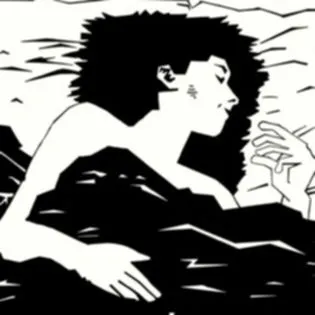<sarcasm>Yes, it’s true: before work was invented everyone lived in their own filth and starved all the time because work hadn’t been invented yet. </sarcasm>
Beyond jokes, my intention here is to clarify what is meant by antiwork. Antiwork does not mean that a world that has abolished work would see people live in filth and starve. In a world that has abolished work, people will still farm, clean, teach, provide medicine, take out fires, et cetera. Antiwork means the revolutionary abolition of the world of work and all that entails: a waged-labor, a division of labor between waged work and house work, alienation, bullshit jobs, a division between leisure and waged work, compulsion to work or starve, et cetera. Some people call this degrowth, others communism, still others anarchy.
So:
What is work?
Work is a lot of things. For starters, it developed historically from feudal times and had since evolved in its current form in the capitalist mode of production. Within the context of the capitalist mode of production work is waged-labor or reproductive (or house) work and is defined by divisions and alienations. These include a division of labor between waged work and house work, alienation, a division between leisure and waged work, and a compulsion to work or starve. That last one is important. Working people today are free to not work, or starve. This is the freedom that work grants us.
Will people starve and live in filth?
No. Antiwork does not mean that a world that has abolished work would see people live in filth and starve. In a world that has abolished work, people will still farm, clean, teach, provide medicine, take out fires, et cetera.
Will people be bored without work?
I think it’s more accurate to say people will be bored by work. A world that has abolished work will still see people that keep themselves busy. Historically speaking, during the Age of Enlightenment, it was the leisure class that didn’t do work that was able to make all sorts of exciting and revolutionary ideas about science and art. They won the right to not work because they were privileged due to their wealth. If everyone was able to free themselves from the drudgery of work, what wonders could they achieve?
I expect this post to be a sort of living document. Please feel free to ask questions and I’ll try to answer it in the post. ___


How do you guarantee that enough people will, of their own accord, do the unpleasant jobs required to keep society running?
Because people want to. People like society. There’s no shortage of people who would do whatever needs to be done to keep things running, they just don’t want to be forced to.
The things that end up dying? They’re not important to society, and so we’re wasting energy keeping them running. If it’s important, people will do the work.
Maybe they won’t and for a time they’ll live in their filth and starve. But who wants to live like that? Since time immemorial people have been finding ways to feed and clean themselves and others without notions of profit, wages, division of labor, mute compulsion of work or starve, etc. People have figured this out before and we can do so again.
Surely you clean your own house and stock your own food, if not cook it yourself? The same compulsion that drives one to clean their own homes and feed themselves will continue to exist on a societal scale even after work has been abolished.
Antiwork does not mean unpleasant tasks will disappear, rather that these will vs collectively managed in a way to maximize leisure. In the book The Dispossessed by Ursula K. Le Guin, a book that has a lot of antiwork themes, people take turns cleaning and dedicate 1 day out of 10 to take their turn doing chores in their community. Every other day they’re free to self-actualize in whatever way they see fit. There are some parts of the book that isn’t antiwork, like a machine that sometimes assigns people to only manual labor when they’d rather write, but generally the book isn’t a model for antiwork and that plot point was part of the central drama of the text.
What if people refuse to help clean or take turns doing unpleasant jobs if they are able, however minimized it has been made? In the The Dispossessed, this is mentioned. In the book, those people are treated differently, and people regard them less. Think of it if you had a roommate who is a slob. You’d be contemptuous of them. But who wants to be held in contempt? People want to be liked. The cost of these tasks is no longer “work or starve” but “help out or you’ll be disliked.”
There will be other ways to persuade. I cannot recount them all. And if they persist? Let them. It is better that a few freeloaders live than everyone live under a regime of work.